#tevinter mage inquisitor
Text
Mother Giselle:"You actually were telling the truth."
Dorian:"I do that quite a lot, yet people are always surprised."
#Don't let the mage from Tevinter influence you inquisitor.#feykrorovaan#dragon age inquisition#dorian pavus#dragon age#mother giselle#I liked you until you insulted my friend#incorrect dragon age quotes
45 notes
·
View notes
Text
it took me about 8 years, since this is my first time playing the game, but i now understand why all my mutuals who love da:i also hate it..... there is so much to unpack here, but i am also enjoying myself SO much but WOW some of the writing??? the narrative choices????
#mari speaks#playing as an elf mage inquisitor is also funny bc of everything i keep learning#what the fuck is wrong with the dragon age world tho#why did you make my inquisitor have an argument with dorian about tevinter slavery#WHY is slavery even a thing in this game#it does not benefit the narrative at all#this game is so fun but there are just certain things that really get to me#literally every group sucks what the hell!!#the chantry sucks#the circle of magi sucks#the imperium is horrible#and everything with ironbull?? i felt SO bad when i was like 'yeah save your friends instead' and now he's got assassins after him#don't even get me started on orlais#my friend did let me know there's short stories and stuff that fix some of the writing#but Man#at least miriam got to kill her oppressors in da: absolution
12 notes
·
View notes
Photo

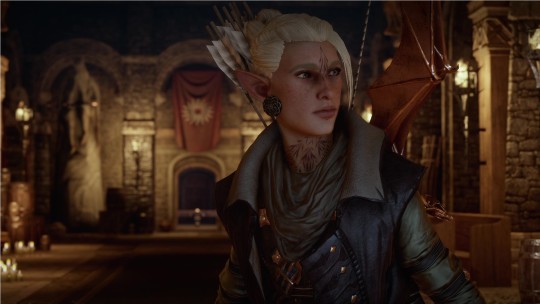
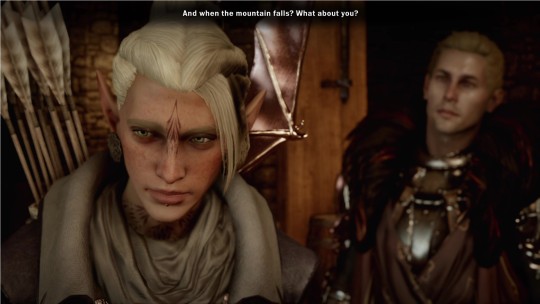



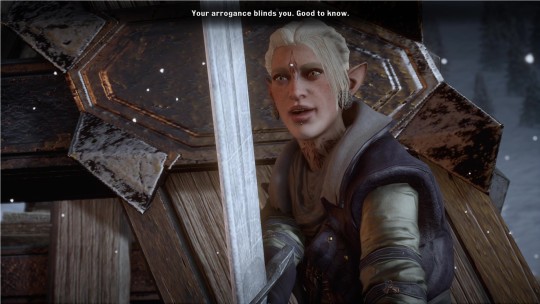
i do use this game primarily as a way to take a billion screenshots of my Elf Of The Week, but also the entire in your heart shall burn sequence still goes hard as fuck. that moment in the chantry of the herald fully deciding to die. corypheus, albeit somewhat a lame villain, coming in with that “i have seen the throne of the gods and it was empty” line. the game forcing the herald to stagger and drag themself through the snow, shivering and injured and exhausted, the anchor going wild on their hand the entire time, and then the second they hear a familiar voice and know they’re safe their legs give out. i just hgj;sdhgjsd
#like you find camping evidence#how long was the herald trapped under haven#how hurt are they#they got hit by an avalanche and knocked into a mine they are Not okay#but also#cory: i have seen the throne of the gods and it was empty#ella: called it#his friends somehow hearing him from however far away: now is NOT THE TIME ELLA#dragon age#oc: ellassan lavellan#i lovea him#i think he's My Inquisitor#my weird little dalish scientist#he's kind he's funny he's definitely autistic#he's no longer being normal about that tevinter mage
11 notes
·
View notes
Text
i like questions about my dragon age ocs but with inquisition and origins, it’s particularly interesting to think about because while i have my ‘main’ inquisitor, the others (particularly the other trevelyans, like max or esme who are both hal’s older siblings) still play a role in every canon. i like to do the same with my wardens, ie: my main is amell but the other origins all survive (except mahariel but he also dies when he’s the canon warden rip to him) and join the wardens eventually. so i can come up with answers for them as the main character but also as side characters, and there’s a real difference in their journeys! hal’s a mage so his plight is evidently influenced by his siblings’ decisions if they’re the inquisitors. max sides with the templars? hal dies. esme sides with the mages but they’re shackled to the inquisition? he runs away and only come back in trespasser.
#long story short hal's actions are fueled by spite#rightfully so!#love this angry bitchy little mage so much#and there's a lot to be said about what the companions think of all of that! max is romancing dorian who's a mage#and dorian is very fond of hal in any universe#he's like whos this lost sassy child who makes fun of my facial hair????? im adopting him#esp since hal totally follows the inquisitor (esp if its his siblings) in the redcliffe chantry#and hal is 1) yes completely making fun of dorian but also 2) FASCINATED by tevinter mages#and their freedom#and how far they're advanced magically#basically dorian is a mentor to hal and kind of an older brother since it takes hal and max a while to mend their relationship#with my lavellan's playthrough hal is fiona's young and angry bodyguard and eventually is recruited as a scout bc he excels at scouting#ocs lore
0 notes
Note
Hello friend :) I was wondering if there is a definitive list of known spies of Fen'harel? In Trespasser we meet one ("The elven guard that led you to the Qunari body, who intercepted the servant with the gaatlock barrel? Mine.") but can't remember if there are any other such cases we can look back on. Thanks!!!
hello! ◕‿◕ oh, good question! I don’t know that there is a definitive list.
there is the elven lady - the guard from Trespasser - as you say
Solas mentions in Trespasser, but doesn’t name of course, the existence of multiple spies of his that were within the Inquisition (the ones that “tripped over” the Qunari spies within the Inquisition)
a Trespasser epilogue slide reads “After the events at the Winter Palace, elves left the Inquisition under mysterious circumstances, as did elven servants across Thedas. None could say where they went, but those who believed the Inquisitor's story about Fen'Harel wondered just how large the Dread Wolf's forces were... and what the ancient elven rebel had planned.” – it’s likely that at least some of these were working as his agents/spies at the time of the events of DA:I, and those that weren't, well, they’ve left their lives in Thedas to go join him and are his agents now. tying to this, in Tevinter Nights, the rumors going around Thedas that “dozens” of elves have gone to join him are mentioned
In Half Up Front in TN, there is the elf who hired Irian and Vadis to try and steal Dumat’s Folly, who then poisoned herself rather than be caught
In the same short story, Gatt mentions a male agent of Fen’Harel who was within the ranks of the Ben-Hassrath, explaining that he tricked them also into trying to steal Dumat’s Folly
In Dread Wolf Take You in TN, the Carta Assassin relates his tale and it has three elven agents in it: the one with the regular Fereldan accent (as opposed to Dalish) who is presumably a former Fereldan City Elf, the one whose accent does sound Dalish only more formal and poetic (who from this is implied to be an ancient elf**), and the Dalish elf who they accidentally killed, who was the one to originally make contact with the Carta assassin’s boys and who told them that he learned of the idol being in the statue of Meredith from a dream.
Felassan, of course
Gaius, from the comic Dragon Age: Deception
** not a wild idea, Felassan was another example, there are also groups around like Abelas and the sentinels in the Temple of Mythal, Solas alludes to other groups of them too in DA:I with his dialogue line to Abelas "There are other places, friend. Other duties. Your [ancient elvhen] people yet linger." were these other duties.. being agents of Fen'Harel and helping out Solas with his plans?
Honorable mentions:
at one point the Qunari thought Solas himself was an agent of Fen’Harel (Charred Note reads "These walls of blue flame were cast by the agent of Fen'Harel as he ran through this place bringing chaos and destruction. [...] Fen'Harel's mage-servant made them to hamper us, and they bring only death.")
at one point the Qunari thought the Inquisitor was an agent of Fen’Harel
his agents once tried to recruit Irian Cestes, but she turned them down.
(lmk if there’s any I missed.) :>
#dragon age#bioware#solas#tevinter nights#mj replies#video games#gideo-vames#felassan#Best Elf#long post#longpost
61 notes
·
View notes
Text
You know what the most annoying thing about the Twists regarding the Elves in Inquisition was?
That all the twists, if taken on their own, would make for a really good story.
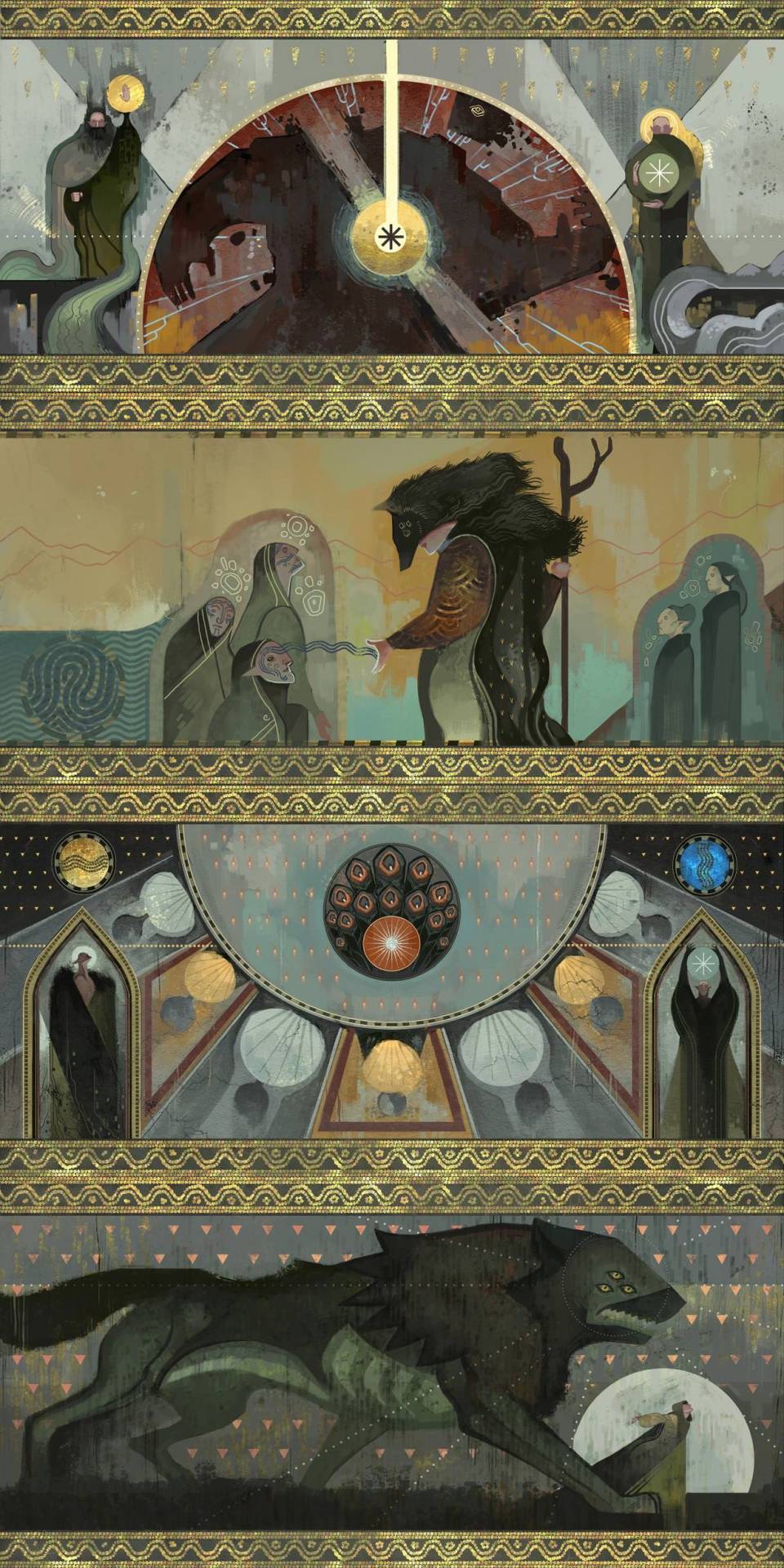
The reveals about Solas backstory and how him and his fellow God Kings rose, became decadent, warred with each other and fell, setting the stage for their transformation into the Old Gods is frankly speaking, some of the best lore that Dragon Age ever had, and lines up really well with how the world is structured while explaining how the Old Gods came to be, how the elves fell, and so on.
That the tevinter imperium when it conquered the nation of Arlathan was not the great imperial state lead by mighty mages their descendants liked to think they were, but instead a bunch of weaklings that needed years and years to take on one, measly city-state that had utterly obliterated itself in civil war.
There is so much great stuff here.
So where did it all go wrong?
The answer, is of course execution.
Inquisition overall is a great game... But man did it drop the ball so hard with the Elves that it's pretty much hard to believe that they will be able to tell a nuanced story about them in Dread Wolf.
Everything from the companions, to the world itself as the game presents , to retcons regarding mages that's there, not to tell a story about the elves, but to try and make the Templar vs mage conflict grey.
Starting with the companions, we have a great example of coming so, so close to greatness... and then falling right on it's face.
The game has two Elf companions, solas and Sera... and the contrast between them really illustrates the big picture with how incapable Inquisition is with trying to tell a nuanced picture with the elves.

Solas as a character is perfect. Love him or hate him, he is a fully fleshed out character with very clear, defined, understandable motives that makes sense to him.
And most importantly of all, his way of viewing the world is WRONG. The game acknowledges that he is wrong.
The entire story of where dragon age 4 is heading, is all about how the Dread wolf, for all his knowledge and intelligence and genuine virtues, is at the end of the day, a monster, who is willing to see the world burn to restore the Elves magic and immortality.
He is a racist, he is bigoted, and ultimately misguided. Despite all his development with the inquisitor, he does not manage to grow enough as a person that he manages to abandon his genocidal goals. And the game does not pretend othervise.
That is what makes the story of Solas rise to become the big villain of the sequel great.
There is no disconnect between the story, the characters, or the way the game wants us to view solas.
Solas is far, far more bigoted and close-minded than any of the dalish he so despises, and the game ultimately does not pretend othervise.
Which brings us to the opposite end of the elf spectrum with Sera.
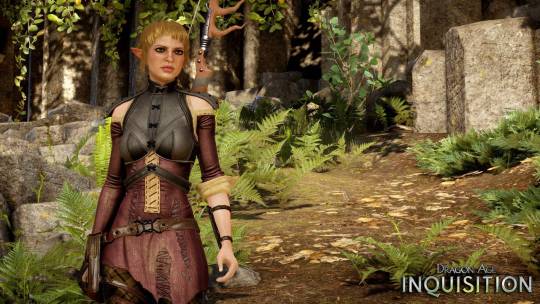
Sera is a very disliked character by a lot of people, but by dalish and elf players/fans more than most.
Just like Solas, she is bigoted, racist, and ultimately misguided in her hatred of her fellow elves, whether they be city elves, or Dalish, or ancient elves.
And that frankly, would not be a problem if the game acknowledged that fact. If her character arc was about it, and either how she could not overcome her own issues, or actually managed to grow beyond them, she could have been a great character.
The problem is the fact that the game is not willing to handle this fact head on. Its not willing to come out and portray Sera as just as bigoted against her own kind as Solas is, and to treat this as a flaw.
Instead the game treats her as if her biggest flaw is that she's annoying, and not the fact that in a game that is in many ways about setting up the rise of the dread wolf, she is just as bad as Solas, just from a different origin point.
Sera should have been a mirror to Solas, both from a story point, as well as a thematic one, but unfortunately she is not.
Hell, she doesn't really overcome her racism either. The closest she comes to doing so, is basically burning out on hating the dalish and other elves in trespasser, not admitting she was actually wrong to hate them so much in the first place.
The game does not treat Sera's disdain for other elves and their culture as a problem, and it does not give a dalish inquisitor the option to tell her to go fuck herself on the topic that you are given with Solas if you really desire to do so.
You are given the option of kicking her out of the inquisition, but not actually stand up for the dalish or even city elves the way the player could against Morrigan's flemeth raised cruelty in origins, anders and Fenris obsessions with, and hatred for templars/mages in da2, or solas ideals in inquisition.
And thats a problem that really illustrates the bigger issue with the way Inquisition took what could have been a great story about the Elves and the reveals about their anceators, and frankly ruined it.
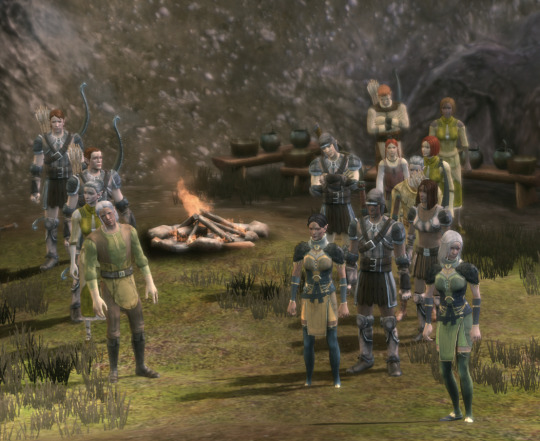
The dalish and city elvea were very thouroughly fleshed in both Origins, Awakening and DA2.
However, city elves largely managed to avoid being utterly destroyed by the narrative the way the Dalish were, for the simple reason that outside briala, we don't get much if any interaction with them at all, making them essentially a non show foe the game for the most part. They don't get a city elf inquisitor, and so we have no point of view to look at them from a pc perspective.
They got off much better than the dalish though.
Starting off with the arguably single worst thing in all of DAI is the retcon that Dalish clans, if there is more than two mages in a clan, sends off the third one alone in the wilderness to fend for themselves. This goes against absolutely everything that has ever been established about the Dalish, and worst of all, wasn't even an addition meant to demonize the dalish, instead being an addition to handwave away the obvious fact that the Dalish had a much better system than the human circles when it came to magic... Which in turn was made irrelevant by the fact the Avvar was later shown to have a much better and more effective solution to the possession question anyway.
It was, in essence, a pointless retcon, that overall only made the dalish look bad, and has now opened the door for the idea that most dalish clans acts like this, and will be portrayed so in future games.
Its bad, but unfortunately it was only the start.
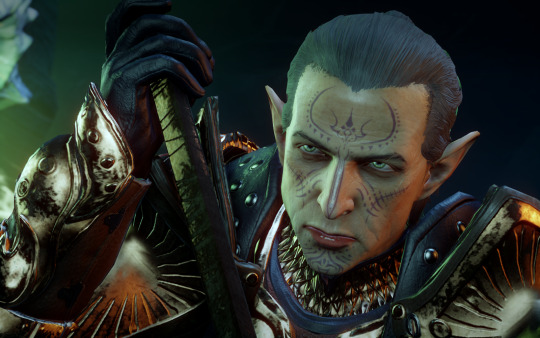
The game goes out of its way to portray absolutely every single person who critices the dalish as having a point, that they brought on their own downfalls, even as they are being the most imperialistic, racist assholes imaginable, while the dalish inquisitor can only offer a token of defence for his people, a far cry from way origins allowed you to handle the same situation wheter your main ethnicity was ferelden, mage, city elf, dalish, casteless or dwarven noble.
But nowhere is it worse than the way the game handles the fall of the dales.
Now the actual lore you learn about it, is not bad. At all. I know some complain that the reveals that ameridan(and presumably other elves) worshipped both the creators and the maker, as well as the fact that the dalish unfortunately did have a bad relationahip with the rest of the world, in particular orlais, is bad storytelling, but i firmly disagree.
No the problem is the execution.
Ameridan is not wrong when he says that The Dales should not have distanced itself from the rest of the world, especially not in the face of a blight... But the Dales of his era were in turn not wrong when they argued that the Orlesians were little better than the imperium, and they would be completely right.
This is not a grey issue, its a grey and black issue.
Orlais was, and still is an evil, expansionist empire with 99% of its population living as serfs, that can be raped and beaten at will, little better than slaves.
The dales were the morally right side of the exalted march on the dales. No amount of new lore we learned in inquisition has changed that fact. We simply get the details fleshed out a bit more to add context.
Orlais was going to invade and enslave the elves anyway, as they proved through their actions against all their other, very much fellow Adrastian neighbors.
The problem is that you are not allowed to express this kind of point of view and stick to it like steel.
The characters you meet having the bigoted opinion that the dales ultimately brought on their own fate is NOT a bad thing in and out of itself... the problem is that you are not allowed to challenge that opinion the way you could challenge Lelliana's view of the dalish in origins, or the way you could tell both Anders and fenris to go fuck themselves on their extremist opinions all through da2, and ending that fuck you by killing them in the endgame.
And thats a real shame, because just looking at characters like cassandra's character development through Inquisition, you could easily have made a really compelling narrative put of a dalish inquisitor who stuck by his or her principles, and actually challenged the people they met's racist views on the dalish the way you could in origins, just with a more fleshed out and(unfortunately something way too many people just cannot emote to a character withouth) an actual voice to raise those arguments with.
I do genuinely like Inquisition, and i think it's overall a much better game than DA2... but man did they drop the ball with the elves so hard.
I feel so sorry for anyone who really got invested in the elves as their favorites factions, and i honestly don't think the elves will be handled particularly well in Dread wolf, especially as the only Dalish we are likely to see fleshed out will be the villains fighting for Solas.
#dragon age#dragon age origins#dragon age inquisition#elvhen#elves#dalish#the dales#city elves#solas#sera#meta#dread wolf
397 notes
·
View notes
Text
Bioware's dislike of the mage rebellion
I really enjoyed Absolution, but it continues to immensely frustrate me that people writing for Bioware refuse to write pro-rebellion mages. Qwydion is a "rebel mage" - whose introductory line about the topic is that she isn't actually a rebel. She's a mercenary who pretends to care about the rebellion because people pay more for a cause. It annoyed me, but also got me thinking:
Since Anders, there have been no (afaik) pro-rebellion mages in major roles in Dragon Age media - and very few pro-rebellion characters have ever been portrayed in a favourable light.
Major mage characters since the start of the mage rebellion (I'm counting from the end of DA2), excluding comics/short stories/Tevinter Nights:
Rhys (Asunder). He starts as a Libertarian who defects to the Aequitarians because of disagreements with a pro-rebellion mage. He votes in favour of mages leaving the Circles, but he's not exactly happy about it.
Felassan (Masked Empire). Not particularly concerned with the rebellion. Definitely has other priorities - the Circle can't really touch him.
Valya (Last Flight). The whole premise behind her existence in the novel (I haven't finished it yet) is that she doesn't want to fight in the rebellion. She would rather die as a Warden than take her chances as a rebel.
Vivienne (Inquisition). We know how this one goes. Pro-Circle, fervently anti-rebellion.
Solas (Inquisition). Not pro-Circle, but he's more apostate than rebel and more *gestures at his whole deal* than apostate.
Dorian (Inquisition). Tevinter, with little to no stakes in the rebellion. Will specifically voice his doubts about whether a full alliance with the mage rebellion is actually a good idea.
Mage Inquisitor (Inquisition). Can absolutely hold anti-Circle and pro-rebellion views. Only a Trevelyan mage Inquisitor can have been a rebel, though.
Qwydion (Absolution). As discussed above, more of a mercenary than a rebel and her only comment on the matter is stating that she isn't one.
Saphira (Absolution). Again, a Tevinter mage with no real stake in the rebellion. Was seemingly in Ferelden during Inquisition, but makes no comment on the rebellion.
And what about the narrative's general treatment of mage characters, particularly mage rebels? Well, it's not good. People have already discussed at length that Anders is almost universally demonised in post-DA2 Dragon Age media that mentions him, but he's not the only one.
The most fervent mage rebels in Asunder are Adrian and Fiona - the former is generally discredited as a scary radical who alienates people with her actions, and the latter is portrayed largely as foolish/weak in Inquisition (I disagree, but the narrative of Inquisition has little time for it). The mage rebellion in Inquisition is seen as a terrible, dangerous group destroying the region just as much as the Templars and for just as bad a reason.
More recent Dragon Age entries are also more generally anti-blood magic - no blood mage companions in Inquisition, no specialisation, characters who will speak against it frequently (most notably Hawke), and a blood mage villain in Absolution. Not to mention that Absolution also inadvertently reinforces the "necessity" of Harrowings by showing that Rezaren failed his.
And that isn't even the end of it!! There's a general narrative arc in Dragon Age which serves to validate the Chantry view of mages - the Blight was (seemingly) caused by Tevinter mages. The elven gods were just powerful mages - and they were slavers just like in Tevinter (making our only two examples of mage-dominated societies also slave-based). Mage companions deceive or betray you, their actions responsible/anticipated to be responsible for hundreds of deaths in a way that isn't the case for other former companions. The mage who found the cure for tranquility accidentally killed everyone in the city. From the Chantry boom onwards, 3/5 of our biggest in-game antagonists/bosses have been mages. If we're counting Absolution, that brings us up to 4/6.
This means that the general message of recent Dragon Age isn't just a disdain for the rebellion and its participants, but also a general lean towards saying that the rebellion should never have happened in the first place - because the Templars are right. Mages are Bad.
This probably isn't much of a revelation for a lot of people, but it stands completely in contrast with how I (and a lot of people) understand mage-related conflicts in Dragon Age. How Bioware have managed to set up a compelling narrative showing oppression+attempts to deconstruct it and then decided that no one should resist it (and if they do, they're never good people) is just.......what.
842 notes
·
View notes
Text
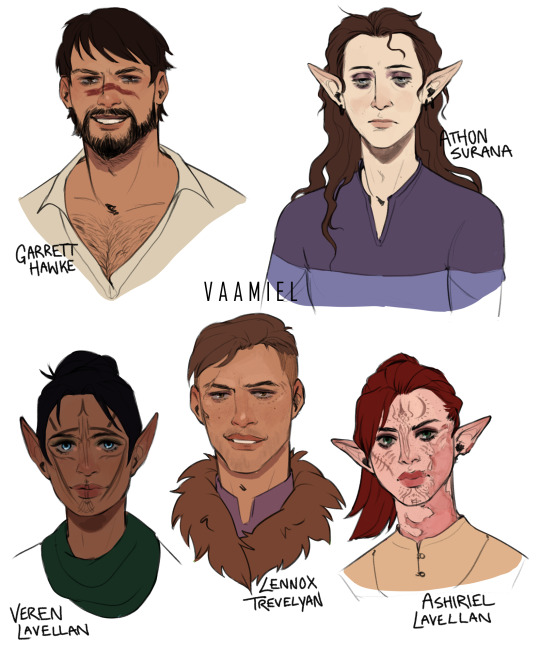
My commissions are open!
I drew my dragon age protagonists!
I love them all so much 🥹 I figure I might as well write a lil about them so more info below the cut!
(this is quite long so be warned!)
Athon Surana is my warden!
He's a crunchy little bookworm who would much rather be researching or reading than fighting (or sleeping. Or eating. Or brushing his hair. Pretty much anything else).
He's an arcane warrior. Not because he wanted to be a frontline fighter or wield a sword, but literally because it requires less effort and thought than casting spells in combat. That's not to say he's a bad mage - quite the opposite in fact - but he doesn't want to spend the mental energy on fighting when he could much rather use his brain for Other Things.
Zevran is the love of his life, though I think them getting together is more incidental than anything else. Athon would likely have never sought companionship from anyone at all if he was left to his own devices, but he enjoys the time he spends with zev very much!
I imagine he's currently buried under a pile of books somewhere in Weisshaupt. The events of DAD will absolutely happen around him and he won't even bother to stick his head out of the library.
Garrett Hawke is.. well, you know
I love the default name and appearance for Garrett. The more I play DA2 the more it sticks as the only option for his appearance in my mind 🥲
I think my headcanons for him stick pretty close to canon - maybe with the exception I imagine him being even more pro-mage (perhaps even slightly racial) compared to the options you're provided in-game?
Anders is his romance and Garrett is very much All In on his ideals. Tbh I DO headcanon that he put together the plan about the chantry explosion and never stepped in because he supported the action.
I imagine he and Anders are off galavanting around Weisshaupt, waiting for Athon to finish developing a cure for the taint (and annoying Carver until the end of his days, certainly).
Lennox Trevelyan is my latest inquisitor!
He's the oldest of my three inquisitors, and incidentally the oldest of his siblings as well. Getting sent to the tower at a young age was frustrating and I think he held a lot of resentment toward his family and the circle for being caged as he was.
He also lost his faith during his years in the circle, which was quite jarring for someone raised in such a devout family.
That Lennox never saw any of his siblings or his parents again really Messed Him Up for a long time, and left him with a little bit of an inferiority complex and a smidge of abandonment issues 🥲
The inquisition (and his role in it) made things both better and worse - the power never went to his head, but he was certainly a bit of a radicalist when it came to freedom for mages and equality amongst all those under his command.
His romance is Dorian, and tbh with his disbanding of the inquisition, I imagine he went chasing after him to Tevinter (darn abandonment issues strike again), acting as a liaison for Leliana as divine.
Ashiriel Lavellan is my middle child with a weird AU backstory
SO Ashiriel is my one character that breaks a lot of the established lore. She was inspired by an au I built for myself and then never posted anywhere around... 2018? Where Dorian fled Tevinter with the help of the chargers a year or so early.
Ashiriel never imagined herself a mage. She made it 25 years without any magic manifesting, then during a traumatic incident when caught by some nasty noblemen in the forest, she lit them on fire (and half of herself too).
Basically, to cut an incredibly long-winded backstory short, she was rescued by bull and Dorian after they stumbled upon her. The chargers stayed with clan Lavellan for a time, helping Ashiriel heal and defending them as they moved away from Wycome etc.
They don't meet again until the tear etc, but all this sort of informed how I built Ashiriel in the game!
Cullen is Ashiriel's husband and I imagine they live happily ever after in the woods of ferelden, mutually healing from their extensive trauma 😌
Veren was my first inquisitor!
Veren is a precious little baby, new to the world just like me lmao. We both knew nothing going in to inquisition, so I was a stupid dumb dumb idiot and romanced Solas on my first playthrough with her.
We're both not over it.
Veren is a rogue (the only non-mage out of all my protags haha), but because she loved and trusted Solas, she kind of worked heeding his advice the whole game.
The one exception would be the well of sorrows - still reeling from the breakup she decided to ignore him that one time and... Well, we'll see what happens there, I suppose.
You bet your ass she's chasing that stupid egg across Thedas and beyond. Veren is hella determined and will stop at nothing to try to redeem Solas. Or maybe she's in denial, hard to say.
Anyway, I think that's it! If you managed to sit through all this rambling, thanks! Let me know what you think!
#illustration#my art#oc art#dragon age#dragon age inquisition#dragon age 2#dragon age origins#fanart
56 notes
·
View notes
Note
DAI romances react to Inquisitor’s "death" in "here lies the abyss". Like, he/she supposedly left them behind, to not to endanger them. So, the siege begins, they get inside Adamant, but the inquisitor is nowhere to be found. They run to the bridge where he/she was supposed to be and see it collapsed. One of agents says that and Inquisitor, along with the Warden and Hawke, fell into a cliff. What would they do while the siege of the fortress continues? And how would they react to the return? tnx
Cassandra: She does not want to believe it, at first. It has taken so long for her to open her heart to this man, and somehow over these long months the last Seeker has convinced herself that he is untouchable. Haven, the Conclave, the Anchor-- nothing can stop him for long. It was the same mistake she made with Anthony, and the same terrible grief threatens not only her soul but in battle her safety as well. There is enough distraction at least that the fear and the grief do not have long to hold onto her before he returns.
But later, when the screams of battle have ended and he is safe in her arms again, she will let the fear pull unwelcome tears-- and be soothed that he is still there to comfort her.
Solas: It is a judgement blow to the world, that it is the Gray Wardens and their folly that have stolen his Vhenan from him. She was a touchstone in a world so shattered from its proper place-- and her abscence destroys any chance of mercy from the Dread Wolf. He remains at the battle only because he must - and oh it tears at him- disinter her from the rocks to reclaim the power of the Anchor and that is a process best left to the Inquisition. The anger that wells up in him is vented at those who still oppose the Herald's forces, and there is no mercy from the soft spoken apostate until news reaches them that their fearless leader yet lives.
To hold her again, even for the few moments he can allow them, is a paradise. Even if he someday must betray her, even unto the ending of all she has known, it will at least be with a proper farewell and apology.
It is not enough, and yet as he holds her close at the end of the battle, it is enough for the momoent.
Blackwall: It staggers him. To lose her at all is devastating, but for her to fall while trying to help the Wardens is...
Is like standing in the rain and knowing the Warden who saw good in a disgraced captain wasn't coming back from the Deep Roads. The guilt and the shame are like a knife, but knowing that his lies might well have driven her on burn like poison. There is no antidote for his agony, and he can only turn himself to the battle; he can save at least those who were truly brave enough to take the oath and fight the corruption in their ranks.
When she comes back to him, whole and hale and as beautiful as ever, it breaks something in him. When they return to Skyhold he will tell her everything, and there will be no more lies between them.
Dorian: This was always a chance. That was a given going in, an acceptable risk to this whole arrangement, and while it hurts of course at least there is the comfort that the Herald fell...the Inquisitor died doing his...
Maker, he can't even lie to himself. It's devastating, and the moment the Tevinter mage hears the world seems to jolt on his axis. Of course the man he was beginning to love could not survive; there is no destiny kind enough to give Dorian Pavus a chance at the kind of love that last the ages. And so he will give it a story to shake the heavens instead. Those who fight alongside the Inquisition's necromancer will never forget how their foes rose in legions to attack former allies, nor the panic that sprung up in the ranks of their enemies. There are none brave enough to comment on the tears that stream down the mage's face for the battle either, and few willing to stare at him long enough to notice it besides.
But when it is all settled and the Herald is of course miraculously fine again, Dorian...can't. He can't go to him right away, can't hold him close until the shaking has finally stopped. There is tenderness on the road, the gentle touches that assure them both that the other is still alive, but Dorian waits until Skyhold is safe around them before he can truly believe his amatus is safe.
Then they will have words.
Iron Bull: Katoh. There are demons and mages and all manner of magicky....things trying to kill them. If he has failed as a front line body guard to his Kadan, he will not fail their inquisition. The gaping wound deep in his soul will have to wait until...
Until later. Katoh.
(Later, of course, he brings out the good rope and spends plenty of time explaining exactly why they will never do this again.)
Cullen: He wants to weep of course, to throw his sword away and scream, but there is simply no time. Thousands of souls rely on their commander to see them through, and no matter his own grief he will not abandon them. He gives orders and directs soldiers and fights on until the bitter end. When that is done he pushes onward, pushing himself to hold the line and trying to strike down his inner demons by slaughtering outer ones. There is nothing else left.
When she returns to him, there is not even an attempt to hide their reunion as some sort of debrief or meeting. The soldiers might cheer and whistle as their commander carries the Herald to his tent (not for that, lay abouts!) but as it is for their love of both commander and Inquisitor neither very much mind.
Josephine: The hours between one missive and the next are some of the most desolate she has ever known. Leliana and Cullen and all of those persons she has grown close to in the Inquisitors inner circle are gone, and so she can take only a few moments in the stairwell to that dark and hidden library to sob out her grief. If the inquisitor is indeed fallen it will require all of her acumen to keep their allies close, and that is not something that can be done in the early pain of her grief.
If she is there longer than she intended, her wails and sobs swallowed by the silent stone, no one need ever know. And blessed Andraste surely has a hand over her herald, as the next missive is jubilant in the news that her love indeed lives. Her tears are joyful now, but that does not mean she will not have words when their beloved Inquisitor returns.
Mod Fereldone
#dragon age inquisition#cassandra pentaghast#varric tethras#solas#warden blackwall#dorian pavus#the iron bull#romance#adamant fortress#gray warden
138 notes
·
View notes
Text
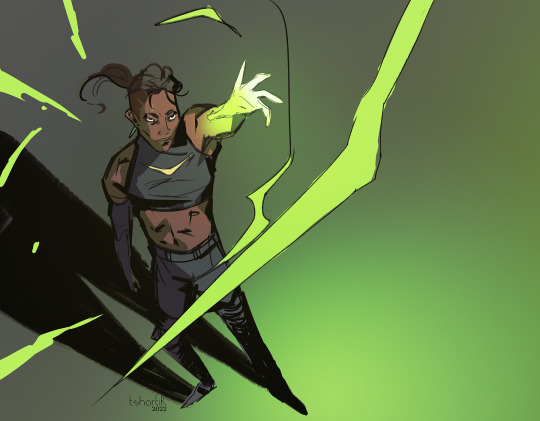
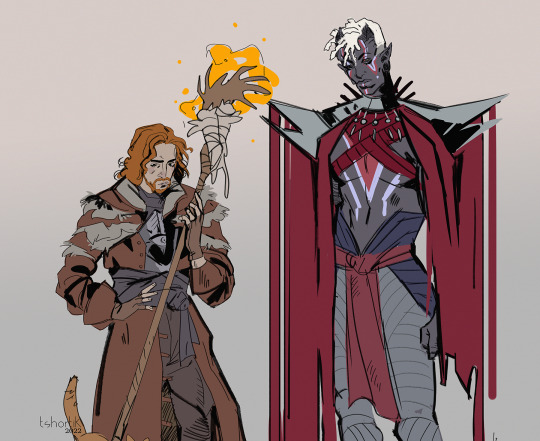
Hear me out: Dragon Age AU where Beau becomes Inquisitor, Caleb as the one who starts the mage rebellion, Essek as a 7ft qunari who hides from the Qun that he's a saarebas doing blood magic + making secret deals with Tevinter... 🤔🧐🧐👀
#beauregard lionett#caleb widogast#essek thelyss#should i tag this dragon age i am unsure#its a silly au#critical role#i did this so quickly all the energy has left me now its time to nap snork mimi
1K notes
·
View notes
Note
If the Spirit!Solas theory happens to be true—and I’m confident it is—then it really gives you a new level of respect for how much restraint this guy has.
I’m talking specifically about his interactions with Dorian. The part where Dorian is trying to convince Solas that enslaving spirits is cool and neat and not wrong because ‘spirits aren’t people.’
Imagine having the strength of character to listen to someone tell you to your face that you are not a person and therefore undeserving of the most basic civil rights without immediately decking them in the face.
Solas puts up with tool much, man.
Oh yeah, definitely! 😂 (As much as I feel for Dorian just trying to find some common ground...) I guess that one line in Tevinter Nights does a great job of putting Solas' attitude on this matter in a nutshell.
[…] roared not in anger, but with quiet contempt.
"From this moment, should you ever bind a spirit, then your life is mine."
Keep in mind, Solas has witnessed spirits suffering from the consequences of creating the Veil for at least a thousand years at this point, if only from the Fade. When he's saying "It hurts. It always does." to the Inquisitor after returning to Skyhold and Wisdom's death, he's referring to the countless times he had to watch his friends being drawn to the waking world, either forced, or to see them “wish to join the living”, only to be twisted, bound, corrupted, killed, you name it.
"How small the pain of one man seems when weighed against the endless depths of memory, of feeling, of existence. That ocean carries everyone. And those of us who learn to see its currents move through life with their fewer ripples."
Much like a lot of his banter with Sera taunting him about his grief for the past, at this point, Solas is so old and has witnessed so much history, so much pain, that Dorian's remarks couldn't possibly evoke any real anger from him. It's so insignificant compared to what he has seen. There's a reason why Weekes keeps emphasizing how friggin tired Solas truly is. This is after all the general perception of spirits in present Thedas, aside from a few cultures like the Avvar. He can't blame Dorian for Tevinter raising him to think of spirits as nothing more than "amorphous constructs", just like he can't blame the Dalish for the knowledge lost to time. Similarly to any other argument he has with the other companions, Solas' frustration/resentment is almost never aimed at them personally, but rather at the current state of the world that shaped their perspective. (As is also evident in how his banter always ends up with them eventually coming to terms and grow a mutual/respectful relationship. The only exception being a low approval Inquisitor and Iron Bull if he chose the Qun over the Chargers… In that case, the hostility was definitely personal. 😂)
(That being said, I'm SO hoping for any kind of serious emotional outbreak from Solas in DA4, since there's still like a thousand year old trauma that needs to be addressed. lol)
But yeah, I think, going by his actions in Tevinter Nights, Tevinter is definitely not ready for what's probably coming for them in DA4, now that Solas is actually able to change things. 👀 And isn't it interesting how he will now be facing the Imperium, which was essentially built on the ruins of the empire he brought down/the same slavery based system he once rebelled against, so history kinda repeats itself? lol
I think it's also very telling how Solas will immediately counter Dorian's comments on the treatment of spirits in Tevinter by directly comparing it to slavery.
Dorian: "There's no harm putting them to constructive use, and most mages back home treat them well."
Solas: "And any that show any magical talent are freed, are they not?"
Dorian: "What? Spirits don't have magical talent."
Solas: "Oh, I'm sorry. I thought you were talking about your slaves."
But the beautiful irony in this, as I've talked about in this post, is how this draws a direct parallel to how Solas, in return, doesn't recognize the people of the waking world as real either, at least not until after the Inquisitor considers Wisdom a living being worth saving. This and his admission to the Inquisitor after he returns to Skyhold is imo the turning point in his character development. Imo, this is what leads him to say "Not at first. You showed me that I was wrong." in his high approval ending in Trespasser.
And this is also why I think that the theory of Solas intending to save the spirits first and foremost would make for such an interesting story actually.
The waking world doesn't view spirits as real people. Just like Solas can't accept the people of the waking world as real. So, what will happen if he tears down the Veil, and the Fade and the waking world become one again? The Inquisitor was potentially willing to save Wisdom despite it having already turned into a Pride demon. And in doing so, the Inquisitor unintentionally put up a mirror in front of Solas' face and basically went "If I can see them as real people worth saving, why can't you?".
And if the spirit origin theory is true, then it could make for a fascinating inner conflict. Solas, living in both the waking world and the Fade, having been a spirit and a corporeal person, is now facing the question of who "his people" actually are. Where does he belong? After all, his biggest fear remains to "die alone".
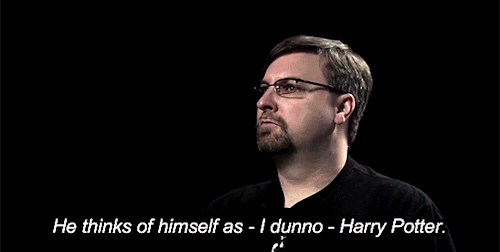
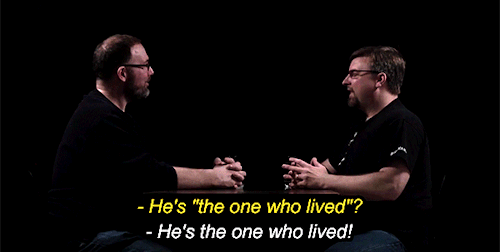
While this was said in more of a joking manner, Weekes' words from 2016 really put it into perspective here. Solas sees himself in that old fisherman he saw in the Fade. He is "the one who lived". So, I picture it like this… Solas is left alone in the Fade after the creation of the Veil. Spirits are now his only company for the next thousand years. Whether or not those spirits were the remaining souls of the elves he tried to save, we don't know, but regardless, I truly believe they are his people. But he is not a spirit. At least, not anymore.
Cole: "You don't need to envy me, Solas. You can find happiness in your own way."
Solas: "I apologize for disturbing you, Cole. I am not a spirit and sometimes it hard to remember such simple truths."
Cole: "They are not gone so long as you remember them."
Solas: "I know."
Cole: "But you could let them go."
Solas: "I know that as well."
Cole: "You didn't do it to be right. You did it to save them."
Inquisitor: "Solas, what is Cole talking about?"
Solas: "A mistake. One of many by a much younger elf who was certain he knew everything."
In this banter, Cole reveals to us that Solas' mind immediately goes from "It's hard for me to accept I'm not a spirit" to "the people that were lost when Solas created the Veil". To me, this pretty much confirms that the people of Elvhenan and spirits are connected, if not one and the same. It's assumed that the Evanuris mined the Titans to somehow create bodies for spirits to inhabit, and that Mythal gave Solas a body against his will. There's also the theory about the creation of the Veil having caused the separation of body and spirit.
You know, I've written so much about this in previous posts and I don't want to sound like a broken record, but if we consider all those little clues and look at all of his dialogue in that context, it just makes so much sense to me, that what he wants to do is primarily to save the spirits/destroy the barrier for them to enter the waking world without their purpose getting corrupted. There's also still the matter of the Blights and red lyrium otherwise probably consuming the entire world. 😅 I think that's what he's referring to when saying "What I am doing will save this world" in Tevinter Nights.
And remember, "Dread Wolf" is still literally an anagram for "World" and "Fade". 😂 Both worlds colliding is quite literally in his title. lol Whatever the six eyed high dragon sized Dread Wolf actually is, as far as we know, he only seems to exist within the Fade, but how exactly is he connected to Solas and what will happen to him if he tears down the Veil (which btw is also definitely gonna happen… I mean, besides the fact that the Veil is getting weaker regardless of Solas' actions)? ANYWAY.
Sorry for rambling so much (and I feel like my English is a little rusty, too 😖), but I haven't talked about this stuff in a while and the lack of news is killing me. 😂 But your message gave me something to think about again, so thank you! :)
#oh no this got so long again 😖#solas#also again Bioware I beg you please give us that ''Solas calling his spirit army and charging into battle'' moment from TN 👀#tinfoil time#da4#''Spirit self. Seeing the soul. Solas. But somehow sorrows.''#watch us play DA4 one day and none of this turn out to be true 😂#but I'm gonna die on that hill lol
89 notes
·
View notes
Text

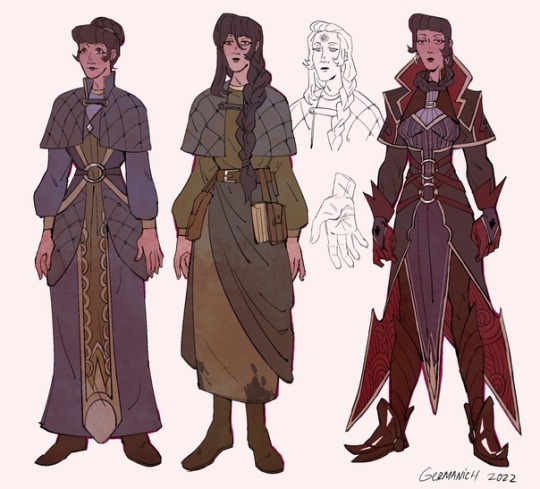
Still love my OCs designs in Dragon Age AU. (Wanna draw them more)
Ace and Winona are both mages and maleficars. But usually, only Winona uses blood magic, Ace just gives her his blood for this
Winona was tranquiled during the events of Dragon Age II. And Ace joined the inquisitor to get close to order of the Seekers of the truth and find a way to reverse the ritual of tranquility. Also, he tried to learn more about the fade. Specifically about the demons and the spirits, cos he thought that there must be an answer in them how to restore the connection to the fade (well, he was right).
Winona was from the Tevinter imperium, but her father thought that she wasn't worthy to become the head of the family and become his full heir. Also, he was trying to kinda protect her. So when she was a kid, she moved to Ferelden, where she joined the Circle. And there she met Ace. Her bestie (and he has a secret crush on her)
#artists on tumblr#oc#oc artwork#original work#oc stuff#original character#dragon age 2#dragon age origins#dragon age#dragon age inqusition#dragon age oc#dragon age mages
103 notes
·
View notes
Text
Magical & Non-Magical Healing in Thedas
Magical Healing
Most healing magic falls under the School of Creation, which is about manipulating natural forces of life. It is a school rarely studied by mages, as it requires more finesse than any other school.
While any mage can study the school of creation and learn to heal, it is Spirit Healers who have the strongest healing magic. Spirit Healers can call in spirits to rapidly heal someone’s body, be it from physical damage or through disease. It requires a special gift of working with spirits in this way, which is rare among mages.
Finally, blood magic is also capable of healing. Solas says, “I once saw a blood mage healer who would shed her own blood to close a patient's wounds,” in defence of blood magic. But the details of this form of healing is unknown.
The extent of what healing magic is capable of varies by the skill of the mage practitioner. In the Tevinter Nights story Three Trees to Midnight, Myrion says that while he only knows a little bit of healing magic and can just close Strife’s wounds, his friend Jasecca was a Spirit Healer who “once reattached a man’s hand after it had been chopped off.”
It’s possible that the average mage in Tevinter is taught at least a little bit of healing magic, as in Tevinter Nights’s The Streets of Minrathous, Neve Gallus is also able to use her magic to slow the flow of blood out her wound, despite claiming to not be a proper healer. This is just like Myrion’s limited abilities.
There are also objects imbued with magical properties capable of healing people. For example, in Herold Had the Plan from Tevinter Nights, Bharv’s amulet completely heals the scratches on his hand without so much as a scar, closes up the wound on his stomach, and even keeps him from dying over a fatal blow.
While magical healing is very useful, because of Chantry-propaganda against magic, there are some in Thedas who would rather suffer than accept magical healing. For example, when the Inquisitor arrives at The Crossroads in the Hinterlands, a soldier tells Mother Giselle not to let any mage touch him when she offers to fetch a healer. But this is not the universal opinion. In Kirkwall, the people of Lowtown and Darktown were willing to shelter and protect Anders as thanks for his healing them.
Non-Magical Healing
There are books found in game that have anatomical diagrams, meaning there is some form of studying the body:

The most extensive evidence of what non-magical healing is like is from the Surgeon character found in Skyhold. The surgeon knows how to set broken bones, and also mentions doing amputations as a last resort. When asked how non-magical healing works, she replies, “good health isn't magic. It's diet, exercise and a balance of the humors.” She has many comments about bloodletting in particular:
“Hmm, somewhat off-colour today, Inquisitor? An excess of bile, perhaps. Might I bleed you?”
“Try not to touch the leeches. They are quite delicate.”
“Come for a bloodletting?”
Humorism was the real life historic belief that the body was made of four fluids: blood, black bile, yellow bile, and phlegm. Disease was believed to be caused by an imbalance of the humors, and so treatment was to “balance” the humors, often by bleeding the patient. This goes against the basics of germ theory also evidently believed in Thedas, so perhaps this surgeon is in fact out of date?
A note found in The Fallow Mire says, “The Gardners are too sick to save, everyone says. Grandfather and my brothers barricaded them in their own house so they wouldn't make anyone else sick.” This would suggest that the average person knows the basics of germ theory, at least to a degree that they know how diseases spread and how to prevent them through quarantine.
If you take Dorian to the Fallow Mire, he will comment, “At least in the city, you can find a decent healer. Out here you have, what? Roots and berries?” So, healers are not always available. In lieu of practicing healers, common folk turn to those who know about herbalism.
[RELATED POST: Canonical Herbalism in Thedas]
Additionally, there are a variety of folk remedies found across Thedas. For example, to cure a cold: “Bring a cup of whiskey to nearly a boil in a kettle, until its vapors permeate your surroundings. Add the juice of half a lemon and two peeled and crushed cloves of raw garlic. Consume before the whiskey cools.”
-----
SOURCES:
Dragon Age: The World of Thedas vol. 2
Tevinter Nights: Three Trees to Midnight
Tevinter Nights: The Streets of Minrathous
Tevinter Nights: Herold Had the Plan
Codex entry: The Four Schools of Magic: Creation (DA:O)
Note: Diary of Peter Marsh (DA:I)
Creation Ability Trees (DA:O) (DA:2)
Spirit Healer Ability Trees (DA:O) (DA:2)
Dialogue with Fereldan refugees in Lowtown (DA:2)
Dialogue with Mother Giselle and a soldier in The Hinterlands (DA:I)
Dialogue from Dorian about the plague in the Fallow Mire (DA:I)
Dialogue with Solas about blood magic (DA:I)
Dialogue with Surgeon in Skyhold (DA:I)
-----
Like these kinds of meta pieces? Please consider supporting me on Patreon, where you could have viewed it a few weeks earlier!
339 notes
·
View notes
Text
Is Solas a Villain?
Spoilers for Dragon Age Inquisition and Trespasser DLC. Maybe DAO and DA2 too.
So is he a villain?
Nope!
That's not me being a Solas apologist.
That's me being a pedantic AF writer/editor/word and literary nerd.
Solas, no matter how players feel about him, is an anti-hero.
Firstly, what is an anti-hero?
1. A character who is a hero to some, a villain to others.
Solas was a hero to the ancient enslaved elves, even if he did end up basically destroying the world. If he does what I suspect, he'll also end up a hero to the current generation of enslaved elves, too. He's mentioned he has spies, many, indicating that many people, even good people, serve him. Because they think of him as a hero.
2. A character whose existence offers a critique of social morals and reality.
Can you think of any other character in DA:I who calls attention to the problems of the status quo more than Solas? I mean, truly pointing out the uncomfortable truth?
This convo w/Dorian sort of illustrates that point.
Dorian: Solas, for what it's worth, I'm sorry.
Dorian: The elven city of Arlathan sounds like a magical place, and for my ancestors to have destroyed it...
Solas: Dorian... hush.
Solas: Empires rise and fall. Arlathan was no more "innocent" than your own Tevinter in its time.
Solas: Your nostalgia for the ancient elves, however romanticized, is pointless.
Solas: If you wish to make amends for past transgressions, free the slaves of all races who live in Tevinter today.
Dorian: I... don't know that I can do that.
Solas: Then how sorry are you?
3. A character who is the focal point of conflict in a story.
Rather a no-brainer on this one. I truly think the actual villain/s of DA:D won't end up being Solas. I think, as he was in DA:I, he's a massive distraction. A misdirection of attention.
4. A character who is particularly engaged in the conflict, typically on their own will, rather than for a specific call for the greater good. As such, the anti-hero focuses on their objective first, and everything else is secondary.
Solas, if Romanced, gives up his heart's desire, the Inquisitor, the only person that has ever drawn his attention from the fade, for his goal, even though you can see how much it destroys him to do it.
His heart, hers, his friends... NOTHING can get in the way of the goal. And it's a goal he's taken on of his own will. He's taking the responsibility of fixing his fuck up because he fucked it up. (He's foolish because if he'd just stop and think for a second, he'd realize he's really bad at fixing things.)
5. An Anti-hero is still operating for what they think is the greater good. Solas truly believes that fixing what he broke is for the greater good of Thedas. Not just his own people, (that's an enjoyable side benefit XD) but Thedas itself. Because it was never meant to have the veil in the first place. (We'll just brush that whole evil self-absorbed mage-gods being set free at the same time under the carpet? Because he has "plans". Solas, Solas, just stop and think for a minute!)
6. They tend to be flawed heroes in the sense that they do wrong things/screw up/cause harm.
Welp. That's pretty much a dictionary definition of Solas, isn't it?
So how is that actually different from a villain?
A villain is a malicious, often cruelly malicious character, who is involved in or devoted to wickedness or crime or hurting others for their own sake. One who contributes evil agency (motivation) to the plot.
The literary purpose of a villain is to stand opposite the hero to help the plot move forward.
In contrast with the hero (which is defined by ingenuity, bravery, pursuit of justice and the greater good), a villain is most often defined by their acts of selfishness, evilness, arrogance, and or cruelty. They are often cunning and display unilaterally agreed upon immorality that can pervert or oppose justice.
In short, an anti-hero is a character who does too much good to be truly bad, and too much bad to truly be considered good.
Solas, as a character, gives unflinchingly of himself to the Inquisition. He gave them his home, if you believe Skyhold is actually his.
He gives of his blood and flesh in battles.
He gives his knowledge.
If Romanced, he gives his heart to a mortal inquisitor.
And he's willing to give whatever is left of his heart, his soul, and very possibly his life to fix what he broke.
Sorry, Solas haters, he's just not the villain you want him to be.
And that's what makes him so bloody fascinating!
Humanity loves our anti-heroes.
Did you know the term anti-hero was used as early as 1714, but that the character archetype has been used by Homer (Theristes), in Ancient Greek drama (Medea), in Roman mythology (Hercules), and in a lot of Renaissance literature (Don Quixote)?
At some point, the existence of an anti-hero character eventually became an established form of social criticism. Which Solas is very good at.
Other examples of anti-heroes most folks will likely recognize
Wade Wilson/Deadpool
Huckleberry Finn
Lou Bloom/Nightcrawler
Bruce Wayne/Batman
Mad Max
Captain Jack Sparrow
Lisbeth Salander (Girl w/dragon tattoo)
Han Solo
Pinnochio
James Bond
Lestat de Lioncourt (Interview w/a Vampire)
Geralt of Rivia (Witcher)
Tyrion Lannister (Game of Thrones)
Dexter Morgan (Dexter)
Indiana Jones
John Rambo
T-800 (The Terminator)
John McClane (Die Hard)
The Beast (Beauty & the Beast)
Tyler Durden (Fight Club)
Magneto (X-Men)
Logan/Wolverine (X-Men)
Riddick
Shrek
Stitch (Lilo & Stitch)
Harley Quinn
Hellboy
John Constantine
Frank Castle (The Punisher)
V (V for Vendetta)
Tony Stark/Iron Man
Sherlock Holmes
Judge Dredd
John Wick
Maleficent
Venom
Angel & Spike (Buffy)
Dean & Sam Winchester (Supernatural)
Oliver Queen/Green Arrow
The Mandalorian/Din Djarin
Wednesday Addams
I'll stop there, because the list could probably go on for a looong time (as if it hasn't already? 😅)
My work of words is my only income. Please consider a tip or becoming a patron. :)
#dragon age series#solas#solavellan#dragon age#dragon age inquisition#inquisitor lavellan#solavellan hell#dragon age confessions#solas dai#dai
109 notes
·
View notes
Text
On Leandra's Last Words
Warnings: discussion of the events of "All That Remains" in DA2, including murder, gore, body horror, and the death of a parent.
So, in the past year I've played Dragon Age II, uh… four times, and in the hindsight of Inquisition, something about a certain quest stands out to me.
In the Act II main quest "All That Remains," the protagonist's mother Leandra Hawke is murdered by a serial killer, a man named Quentin who targets women with features resembling his late wife over the course of several years, and attempts to use blood magic to stitch their dismembered body parts together to recreate her. Leandra's face is the final piece, and poor Hawke has to see their mother's head with another women's eyes attached to this re-animated Frankenstein's monster. Quentin's death breaks the spell, and Leandra dies in Hawke's arms. Before she dies, Leandra comforts Hawke, telling them that she'll get to see their dead father and sibling again, and that she is proud of them.
How exactly Quentin performs this gruesome ritual isn't detailed, and for story purposes, we do not need to know. We know that he uses blood magic, that he calls demons to possess the bodies of the murdered women. This is likely how he is able to reanimate the patchwork body he reconstructs. In the battle that ensues, Hawke and their party have to kill three desire demons called "Possession of Alessa," "Possession of Ninette," and "Possession of Leandra."
What matters for the purposes of the game is that what Quentin does is unusual but basically plausible within the parameters of the universe, and a gruesome example of the more sinister capabilities of magic.
We do know that, at least in the context of Kirkwall and probably the southern Circles as a whole, Quentin's particular form of necromancy was at least somewhat novel. In a secret letter to his "friend and colleague," accompanying a delivery of forbidden books, First Enchanter Orsino writes:
Your last letter was fascinating! You have proven me wrong, once again, by doing the impossible. I shouldn't have doubted your resolve, and I hope you will keep me apprised of further progress.
Necromancy, the act of calling spirits to possess the bodies of the dead, is taboo in the south, but is not particularly groundbreaking in the grand scheme of things. Raising the dead is a common tactic for blood mages in the south. In Nevarra, necromancy is not only a highly respected school of magic, but one integral to Nevarran society and culture. It is suggested that in Tevinter, necromancy is not uncommon and may not even be considered a form of blood magic; it is Dorian's specialization and can be learned by a mage Inquisitor. So the mere act of calling spirits into the bodies of the dead, it is unlikely Orsino would have called "doing the impossible." The breakthrough seems to be that Quentin was able to Frankenstein the bodies of his victims into one, and perhaps to compel the spirits possessing them to act as one. (Orsino does the same with the bodies of dead Circle mages during the final battle, though the result is a lot uglier.)
By the time Hawke catches up with Quentin, Mharen and Ninette are long dead. That Hawke finds Ninette's dismembered hand back in Act I suggests that Quentin did not bother preserving the whole bodies of his victims, but instead took the parts he wanted and discarded the rest. Hawke finds a note in Quentin's lair about using quicklime to preserve a victim's feet, and being displeased with the texture, so we know he had means of preservation. Alessa, the woman Hawke finds kidnapped by Gascard du Puis, is also dead by the time Hawke arrives, and is named in one of the "Possessions" Hawke fights, but as her body appears to be intact, it's unclear if Quentin used any part of her body (which might just be a development oversight).
Leandra, however, is Quentin's last victim, only just taken, and it is her head Quentin uses, so when she speaks to Hawke at the very end, she appears to be alive. If Anders or Merrill have accompanied Hawke, they will remark that only Quentin's magic was keeping her alive, and apologize that they cannot help Leandra.
At this point, when we look at this scene, I find it almost certain that there is a spirit in Leandra's body at the very end.
Leandra has been beheaded. The demon possessing her body has been defeated and the mage who cast the spell is dead. By all rights, she should be dead already, and there should be no last words for Hawke to hear. Unless some other magic is at work.
I see two possibilities here.
First, we might have a situation like that of Wynne in Origins. When Wynne should otherwise have been killed by a demon during Uldred's rebellion, a spirit of faith which had followed Wynne for most of her life joined itself to her, and kept her alive. In fact, this spirit was able to keep Wynne alive for another decade, when she would send the spirit to save the life of the templar Evangeline, sacrificing her own life. While the spirit sustained Wynne's life beyond its natural end, so far as we know Wynne's own soul never left her body; the spirit came to her at the moment she would have died, and kept her alive. While a spirit can possess and animate the body of a dead person, they can't generally prevent the body from decaying (see: Justice and Kristoff's body), so I think it's safe to say based on her extended life that the real Wynne was still there.
A spirit could have come to Leandra at the moment she would have died, and sustained her just until Hawke could arrive, allowing her the chance to say goodbye.
The second possibility, which I think is as likely or more, is that Leandra is, in fact, already dead by the time Hawke arrives.
In various forms since DAII, we've seen that spirits may sometimes take the form of a person who has died, in order to carry out some sense of that individual's purpose. We have Cole the spirit taking on the form of Cole the human boy killed by templar neglect. We have the spirit who appears as Divine Justinia, guiding the Inquisitor through the Fade and helping them to regain their memories.
Hawke and Leandra seem to have a had a difficult relationship at times. Just how difficult depends on Hawke's dialogue choices and personality, and of course every player's own experience is going to color how they read Hawke's mother. In particular, Leandra seems to blame Hawke for their younger sibling's death, placing on her oldest child the responsibility for the family that might otherwise have fallen on Malcolm.
And what are Leandra's last words to Hawke? Exactly what Hawke needs to hear in that moment. That she's going to a better place. That she's proud of Hawke.
It is entirely possible that those are Leandra's own words.
I think it's also very possible they are the words of a spirit, perhaps of love or compassion. Maybe they're the words Leandra wished she could say before she died. Maybe they're simply the words the spirit knows Hawke needs to hear.
Crosspost. Originally posted on dreamwidth on 02/10/21.
629 notes
·
View notes
Note
Happy DADWC! I love the unusual words prompt list! Let's have something for Dorian/Bull, with: "noctivagant - going about in the night; night-wandering" ?
aaa thank you! this was fun <3
@dadrunkwriting
635 words
It had started as a casual suggestion; let’s take a walk. Simple enough. Dorian had to admit that sitting in that library so often was beginning to wear on him - the literature in Skyhold was limited, with most new additions either going downstairs to Solas’ desk or new works that Varric shelved personally. The problem was, Dorian had already read all of them, working through the newest as soon as it was brought up. They weren’t really to his taste, but it was better than reading through yet another book on the southern Chantry.
So he’d started taking trips down to the Herald’s Rest most evenings. Often he drank, but sometimes he just wasted time around people instead. Sometimes he talked with Sera when she was in the mood, and increasingly Bull had invited him to sit with the Chargers, although Dorian always felt woefully out of place there. So a few nights ago Bull had changed tact, asking Dorian if he wanted to take a walk.
There was hardly anything else to do, so he’d agreed. He had regretted that first walk, the wind cutting through his clothing ruthlessly, and even though he realized halfway through that Bull kept trying to carefully - and subtly, all things considered - position himself between Dorian and the wind, it was a useless endeavor. They were too high up and the wind came from everywhere. So when the Inquisitor brought him to Redcliffe, he had spent a fair amount of his own coin on a thick fur coat. Not exactly up to his standard style, but even he would sacrifice comfort to prevent frostbite.
Now they were standing on the battlements, watching the sun go down over the mountains. Dorian was comfortably ensconced in the thick fur, while Bull leaned on the stone beside him. During these walks Dorian had come to appreciate the care with which Bull conducted himself - he’d never once had to dodge those great horns, even when Bull was bent over like now. Were it anyone else, he might have seen the self-awareness as stemming from some anxiety, but with the Qunari it was clearly not an anxious reaction. He was cognizant of who he was, of what he was, and took care with it - without making himself smaller or other than himself.
Dorian admired that. He admired that a lot, actually.
“Never figured you’d get so quiet,” Bull pointed out as the sun finally drifted below the horizon, Dorian laughing. It puffed out in a great white cloud - Maker, but it was chilly up here, especially during the night. He drew the coat up tighter around his neck.
“And here I thought I was sparing you my incessant posturing,” he teased. Bull snorted and gently bumped against Dorian.
“The posturing is nice. Might prefer posing, though.” Dorian felt himself flush and couldn’t entirely bring himself to mind. If nothing else, it made at least one part of his face warm. Besides, this... wasn’t exactly new. He was still figuring it out, still trying to see what Bull wanted from him, but the other man had been patient. More than anything else, that freaked Dorian out. Being desired, being bedded, and nothing afterwards... it was the way it happened in Tevinter. And if he had held out this long with someone back home, they would have gotten tired of him and moved on.
But here they were. Together. Quietly. Gently. “You know,” he said after a beat, “I’m still kind of chilly.”
“Want to go in?” He smiled to hear the sincerity in the question.
“Not really.” Instead he took a step closer, listening to the little huff that escaped the Qunari before a heavy arm settled around him. “Much better.”
“Damn mage,” Bull muttered, Dorian grinning to hear the obvious fondness in his voice.
19 notes
·
View notes